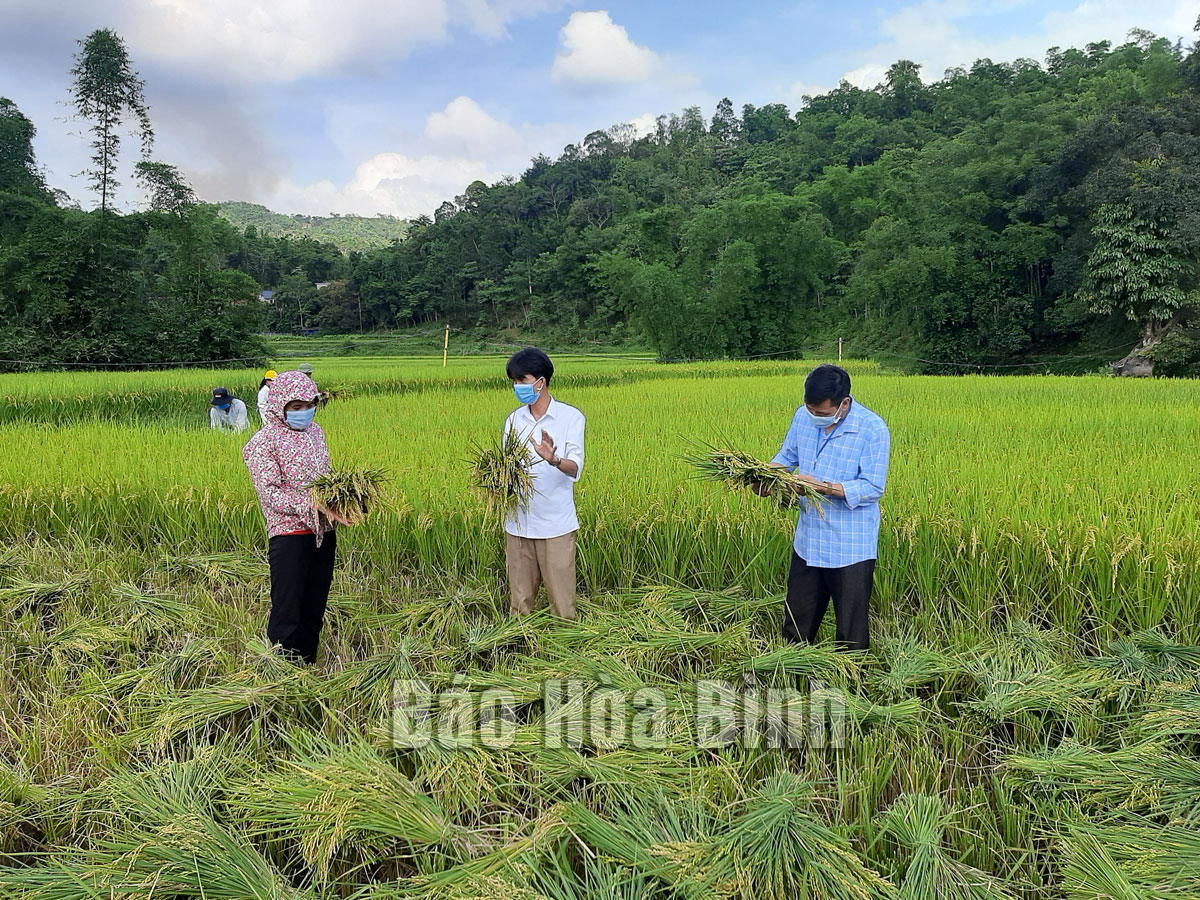
(HBO) – Over the last 5 years, science and technology’s contribution to Hoa Binh’s economic growth has increased from 23.08 percent to 30.24 percent and that of labour productivity rose from 5.25 percent to 8.33 percent. Science, technology and innovation has become a key accelerator of growth in labour productivity and improvement of the province’s competitiveness.

Farmers in Muong Chieng Commune, Da Bac District apply
technology in intensive farming of J02 rice variety to enhance productivity and
production value.
The province has benefited from agricultural and
rural projects as parts of the Ministry of Science and Technology’s programmes
aiming to accelerate technology transfer and apply science and technology to
boost socio-economic development in rural and mountainous areas.
From 2011 – 2020, Hoa Binh implemented four
national science-technology tasks with total budget of 18.43 billion VND from
the central budget, including the pilot production of medicinal plants in Lac
Thuy District, preservation of genetic resources of "tai chua" plant
(garcinia cowa), application of biological measures to prevent certain pests on
orange and tangerine roots, and drafting a proposal for long-term population
resettlement and solutions for effective management of land in areas vulnerable
to natural disasters and climate change.
The accomplishment of the national tasks has
played a part in reducing poverty and minimizing impacts of natural disasters,
and pest and disease control in the province, helping it enhance productivity
and develop commodity production zones.
In addition, the province has implemented 17
projects under the programme supporting the application and transfer of
technological advances for socio-economic development in rural and mountainous
areas with total budget of close to 106 billion VND. The projects mainly focus
on the areas of agriculture and rural development to help create farming
practices using advanced and scalable techniques.
During the past 2 years, the province has
carried out a project to boost agricultural growth and develop livelihood for
natural disaster-affected people across 13 communes and townships and 91
villages in Da Bac District. Many other projects have also proved effective in
other localities in recent years.
In Hoa Binh province, 11 traditional craft villages with more than 400 small-scaled production households have put in place a clean and green production model, establishing new standards for sustainable development. Waste collection sites and wastewater treatment facilities have been meticulously managed by local residents.
To make it easier for the residents to handle administrative procedures, Yen Bong Commune (Lac Thuy District) has identified the administrative reform as one of its key tasks. By implementing a range of synchronized solutions, the commune has seen the positive changes in the administrative reform, meeting the needs of its people.
Mai Chau district has firmly established itself as a standout destination on Vietnam’s tourism map, attracting both domestic and international visitors with its breathtaking landscapes, rich ethnic culture, and warm hospitality. However, beyond its natural and cultural charm, a secure and well-managed tourism environment has added to Mai Chau’s appeal.
As Vietnam enters a new phase of economic and administrative reform in 2025, Hoa Binh province is stepping up its efforts to streamline governance, boost economic growth, and attract investment.
The Hoa Binh provincial People's Committee held its monthly meeting on March 26 to review the progress of key projects, assess budget revenue and public investment disbursement, provide feedback on draft documents for submission to the provincial Party Committee's Standing Board, and discuss other important matters related to the committee's governance activities.
Playing a key role in Hoa Binh province’s economic development, Luong Son district has been focusing on science and technology development, innovation, and digital transformation.



